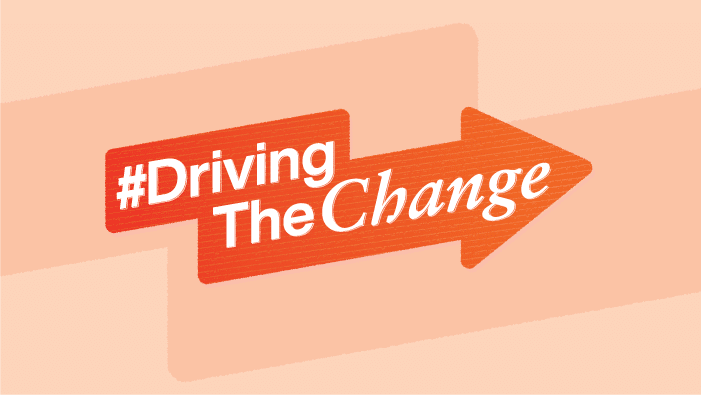Listen to this blog
Software development is in high demand globally due to the digital transformation across industries. Developers create applications, systems, and websites, driving innovation. The increasing reliance on technology fuels demand, making it a lucrative profession. India stands out as a major contributor, producing a significant number of software developers every year. According to the US Bureau of Labor Statistics, there’ll be a 22% surge in demand for developers by 2029, emphasizing the profession’s pivotal role in our tech-driven society.
Bachelor of Computer Applications (BCA) provides a solid foundation for aspiring developers, equipping them with essential programming and problem-solving skills. This degree serves as a stepping stone to a successful career in software development, aligning with industry demands and opening doors to lucrative opportunities.
To know more, you can read 10 reasons you should enroll for an online BCA degree course.

Software Developer roles and responsibilities
Software developers use a variety of technologies and competencies to design, program, create, deploy, and manage software. Additionally, they contribute to the creation of software systems that fuel devices and networks and maintain the functionality of those systems. A software developer might work alone or alongside other programmers and developers on a team, depending on the situation. Their roles and responsibilities can vary based on the specific job, industry, and company, but generally include:
Analysis and planning:
- Collaborate with stakeholders to understand software requirements.
- Analyze end-users’ needs and design software solutions to meet those needs.
- Plan the software development process, including timelines and resources.
Coding and development:
- Write efficient, maintainable, and reusable code.
- Use programming languages and development frameworks to build software applications.
- Debug and troubleshoot issues in the code.
Testing
- Develop and execute test cases to ensure software functionality and performance.
- Identify and fix bugs and glitches in the code.
- Conduct thorough testing to ensure the software meets quality standards.
Documentation:
- Create documentation for code, algorithms, and software processes.
- Maintain comprehensive records for future reference and collaboration.
Version control:
- Use version control systems (e.g., Git) to manage and track changes in the codebase.
Deployment:
- Deploy software applications to production environments.
- Ensure smooth and efficient deployment processes.
Maintenance and upgrades:
- Monitor and maintain software after deployment.
- Implement updates and improvements to enhance software functionality.
Security:
- Implement security measures to protect software from vulnerabilities.
- Address security issues and apply best practices for secure coding.
Collaboration:
- Work closely with other developers, designers, and stakeholders.
- Collaborate with cross-functional teams to integrate software with other systems.
Client interaction:
- Communicate with clients to understand their requirements and address concerns.
- Provide support and updates to clients as needed.
You can also read BCA course details: Syllabus, job & salary.
Steps to become a Software Developer
So, “Can a BCA student become a software engineer or software developer?” The answer is “Yes.” Follow the steps mentioned below to get on the path to becoming a software developer.
- Acquire a bachelor’s in computer applications or a related subject
Most students prefer to enroll in UG courses such as BCA or any other computer science bachelor’s degree programs, where they learn in-depth conceptual ideas of computer science subjects that aid in their understanding of the principles of software engineering.
- Master programming languages
Even if you hold a degree or are a graduate, it won’t help you much if you can’t comprehend programming languages well enough to use it when creating software. Master important programming languages that are in high demand today such as languages like Java, C#, Python, and JavaScript.
- Become familiar with data structures and algorithms
Data structures and algorithms aid programmers in issue-solving by requiring less time and memory. These two topics are very important since they are the foundation of programming. Study mathematics in addition, as it will help you identify problems and develop the best possible algorithm.
- Develop your Skills
Earning a degree aids in learning the basics of software development, but you also need to grasp how to use theoretical knowledge in the real world. You must continue your practice and stay current with the latest technological advancements. Get acquainted with a few of the technologies and tools used by diverse industries.
- Create and implement projects or software
Most employers probably demand prior software development or project management expertise. All the academic stuff you have learned is useless if you don’t know how to apply it. Create some software or other initiatives to put your newfound knowledge into practice and hone your skills.
- Pursue some internships
The ideal way for students to gain exposure to and experience in the workplace is through internships. Students who participate in internships receive hands-on training and real industry exposure while working on projects or products that are relevant to their skill sets. They also learn how to collaborate with others and how to adapt to a team environment.
- Look for employment opportunities
After fulfilling the aforesaid steps, you should start looking for job opportunities. Create a CV and a professional profile on numerous job boards, post your resume there, browse these sites, and submit applications for the openings listed there.

Skills needed to become a software developer
Programming languages: Proficiency in at least one programming language, such as Java, Python, C++, JavaScript, or others, depending on the development domain.
Problem-solving skills: Ability to analyze problems and devise efficient and effective solutions.
Algorithm and data structures: Understanding of algorithms and data structures for designing efficient and scalable software.
Database management: Knowledge of database systems and the ability to design and query databases (e.g., SQL, NoSQL).
Frameworks and libraries: Experience with development frameworks and libraries relevant to the chosen programming language (e.g., Django, Flask for Python).
Soft skills and collaboration: Effective communication, teamwork, and collaboration skills to work with cross-functional teams, stakeholders, and clients.
Testing and debugging: Proficiency in testing techniques and tools to ensure software reliability. Ability to debug and fix issues efficiently.
Security awareness: Understanding of security best practices and awareness of potential vulnerabilities in code.
How much does a Software Developer earn?
Software developers get a handsome salary in India. The salary range of a software developer in India is around ₹ 1.8 Lakhs to ₹ 12 Lakhs, with an average salary of ₹ 7.0 Lakhs yearly. Software developers’ salaries depend on various factors such as skills, experience, employer, and location.
You can read, Is an online BCA course equivalent to a regular BCA?
Top recruiters for Software Developers
Trends indicate that the urgent demand for jobs in engineering, product, data science, marketing, and sales will be fueled by developing technologies such as artificial intelligence, robotics, virtual reality, and cryptocurrencies. Such circumstances have simply opened new frontiers for experienced software developers across. Top recruiters for Software Developers include renowned firms like:
- Microsoft
- Amazon
- TCS
- Infosys
- Accenture
- Capgemini
- Wipro
- Tech Mahindra
- IBM
- HCL
Become a skilled Software Developer with an online BCA through Online Manipal
The online BCA program offered by NAAC A+ accredited Manipal University Jaipur is designed to produce tomorrow’s software developers by fusing the most recent advancements in computer technology, a focus on intellect and inventiveness, in addition to the evolving norms of the sector. Real-world case studies are introduced in the curriculum to help you build and refine your critical thinking abilities. The faculty assist the learners in articulating themselves professionally in a challenging world where confidence and communication are crucial. Learners can also gain hands-on programming experience by practicing through virtual labs. The meticulously crafted curriculum also covers some of the essential software tools and packages including Python, Oracle, Visual Studio, MySQL, and others.
Eligibility criteria:
- Students must have completed their 10+2 or 10+3 diploma from a recognized board and institute.
- Students must have at least 45% aggregate in their 10+2 or diploma. (40% for reserved categories)
Benefits of the program:
- The program provides learners with global tech perspectives
- It helps individuals get better-paying jobs
- It provides learners with hands-on experience and coding skills
- It helps gain coding, analytical, and problem-solving skills.
Conclusion
The need for highly competent software developers is not going to go away anytime soon as the IT businesses are growing and are on the route to greater glory. So, if you are planning to launch your career in software development, then enroll in the online BCA program offered by Manipal University Jaipur to delve deep into the field of software development and pave your way toward a lucrative career.
Become future-ready with our online BCA program
















